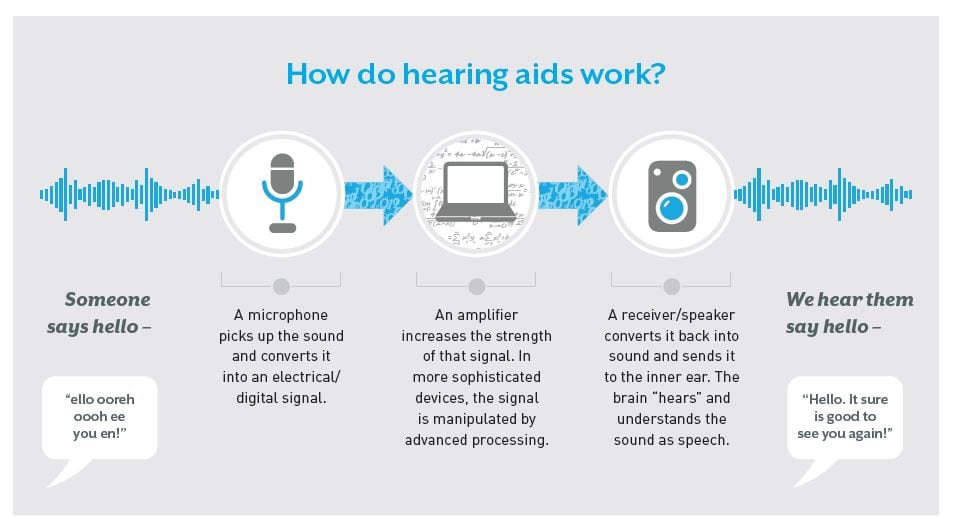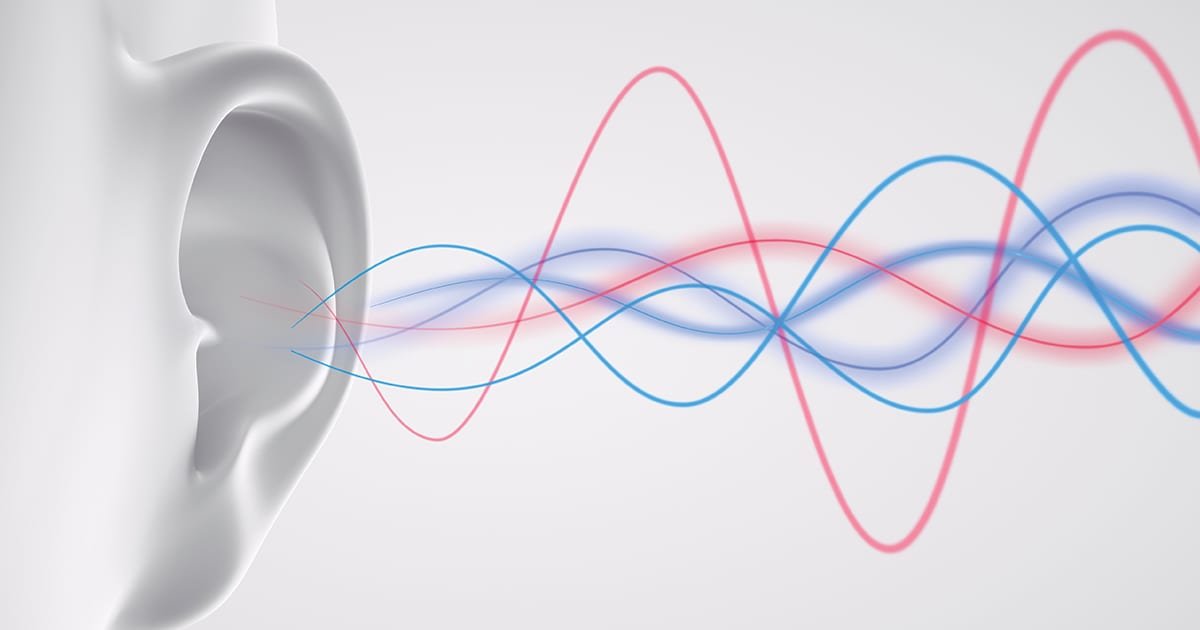Today, more than ever, the best solution for many individuals with hearing loss is hearing aids. Like all high-tech devices, hearing aids have improved significantly over the past several years in terms of performance and appearance.
This includes “invisible” solutions that fit deep inside your ear canal and are virtually undetectable when worn, or wireless options that stream audio directly from your TV, radio and phone. Today’s hearing aids sound better, fit more comfortably and perform more reliably than ever before.
Be Informed About Your Hearing Aid Options
If your hearing healthcare professional recommends hearing aids, you’ll want to be ready with questions. So let’s review what you should know about hearing aids.
How Hearing Aids Help
You may very well have heard negative comments about hearing aids. That’s because the basic premise of hearing aids is to amplify sound. Until the late ‘90s, that’s literally all they did — made everything louder. Today’s hearing aids are designed to do so much more to keep you comfortable and in touch with the world around you.
How Personal Sound Amplifiers (PSAPs) Differ From Hearing Aids
There is a difference between basic amplification products and hearing aids. PSAPs, typically stripped of sound enhancement features, are rudimentary devices similar to old analog hearing aids that only make sounds louder. Although both hearing aids and PSAPs improve the ability to hear sound, hearing aids are designed to improve each individual’s hearing even in difficult situations. With advanced technology features like wireless streaming and body & brain health tracking, the gap between hearing aids and PSAPs becomes even wider.

With so many options to choose from, a licensed audiologist is trained to properly evaluate your hearing loss and also help you thoroughly understand your unique options and determine a solution that is right for you. It is best to consult with a trained medical professional─who also understands the variety and complexities of available technology.
After all, it’s the combination of skilled healthcare and the right technology that make all the difference in the world.
Infographic Source: Starkey Hearing Technologies. 85132-007 11/18 BKLT2889-03-EE-SG
What Does Hearing Loss Sound Like
Visit one of our trusted partners, Phonak, to listen to a hearing loss simulator that compares three levels of hearing (normal, mild loss and severe loss) as you listen to several common sounds (sounds of nature, the city, a phone ringing, speech, music).

When is it time to seek professional help?
As soon as you feel you are experiencing difficulty hearing and/or understanding conversations, especially if you have begun AVOIDING situations and activities that you enjoy because of your hearing difficulties.
Choosing Your Healthcare Team
We are the Lewiston Auburn area’s only private, non-profit provider of comprehensive audiological services.
